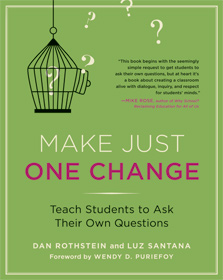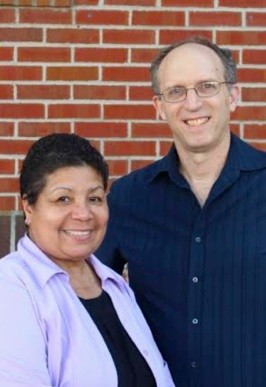Microdemocracy: A new idea that ordinary encounters with public agencies are opportunities for individual citizens to “act democratically” and participate effectively in decisions that affect them.
Democratic Action on One Level is Democratic Action on Any Level
A democracy needs citizens who can ask questions, participate in decisions and hold decision-makers accountable on any level of democracy. Indeed, we encourage people to “act democratically” by writing letters to the editor or to a representative, attending public hearings, organizing, advocating and voting.
But, what do we call it when people in low-income communities ask questions, participate in decisions and hold decision-makers accountable in their ordinary encounters with public and publicly-funded institutions such as their children’s public school, the welfare office, job training program, Medicaid-funded health care service, and public housing? We have no ‘democratic’ name for action at that level.
Democratic theorists may ignore the experiences there or simply call it ‘individual advocacy.” But, they are overlooking the importance of this terrain. We think we should expand our notion of where democratic action can occur. All those public sites are actually outposts of democracy that exist only because of decisions made further up the democratic decision-making chain. The outposts are already considered as public terrain. They could also become democratic terrain. But that depends on what happens there.
The current absence of democracy at the outposts of democracy
The outposts might technically be part of the public arena, but nothing much ‘democratic’ goes on during many of the more than hundred million encounters that take place every year. The people affected by decisions made there rarely participate in decisions affecting them and the encounters too often mark the endpoint of their engagement with the public arena.
It is possible to change that.
Opening a Democratic Window – A New Starting Point for Democratic Action
The Right Question Strategy can change the dynamics of what happens in those encounters. As people learn to focus on decisions and ask their own questions, they begin to participate more effectively in decisions, partner with public servants and also hold decision-makers accountable. These are skills that the Right Question Strategy teaches as thinking and advocacy skills. But, they are also democratic skills and reflect democratic habits of mind. In a democracy, unlike in a dictatorship, citizens should be able to ask questions, participate in decisions that affect them and hold decision-makers accountable.
We also have seen that as people use these democratic skills, they gain confidence in their ability to act on their own behalf. They also make connections for the first time to decisions that affect them that are made on higher levels of democracy. Their experience of participating on the micro level leads to a discovery of the value of participating in traditional forms of democratic action. They begin to move along the continuum of democratic action from an individual encounter at the agency to attending public hearings, joining with others through organizing and exercising their right to vote. Microdemocracy, in these examples, can becomes a new starting point for democratic action.
Examples of Microdemocracy in Action:
Parents and education: A parent participates in an Individual Education Plan meeting with school staff and:
- Focuses on key decisions being made about services needed and provided
- Ask questions about reasons for the decisions, how the decisions are made and what role the parent can or should play
- Partners effectively with school staff and also holds decision-makers accountable for implementing decisions agreed to
Health Care: A patient in an appointment at a community health center:
- Focuses on key decisions being made about diagnoses, referrals, treatments and medication
- Ask questions about reasons for the decisions, the information used to make the decisions and the role the patient can or should play in managing their own health care
- Partners with health care providers, navigates the health care system and participates more effectively in key health care decisions.
Welfare/ Job Training: a participant in an adult literacy welfare to work program:
- Focuses on key decisions being made at the welfare office about benefits offered or denied, services needed and job training opportunities provided
- Ask questions about reasons for the decisions, process for making the decisions and the role client can play in shaping, making or appealing the decision
- Partners effectively with case worker as well as with job training staff and also holds decision-makers accountable for implementing decisions to help client transition to work and meet family’s needs
Democratic Theory Needs to Recognize a Foundational Level of Democratic Action
We present the concept of Microdemocracy to challenge traditional democratic theory to think in new ways about how, when and why people begin to take action. We need to deliberately promote and then respect the significance of people “acting democratically” in the myriad of public agencies where so many small as well as momentous decisions are made that affect tens of millions of people. The alternative is to keep skipping over that level of experience in our democracy. And, that guarantees the status quo. The concept of Microdemocracy offers a different possibility; a vision of millions of people using foundational democratic skills to take action in new ways and in new places that truly become new starting points for democratic action.



